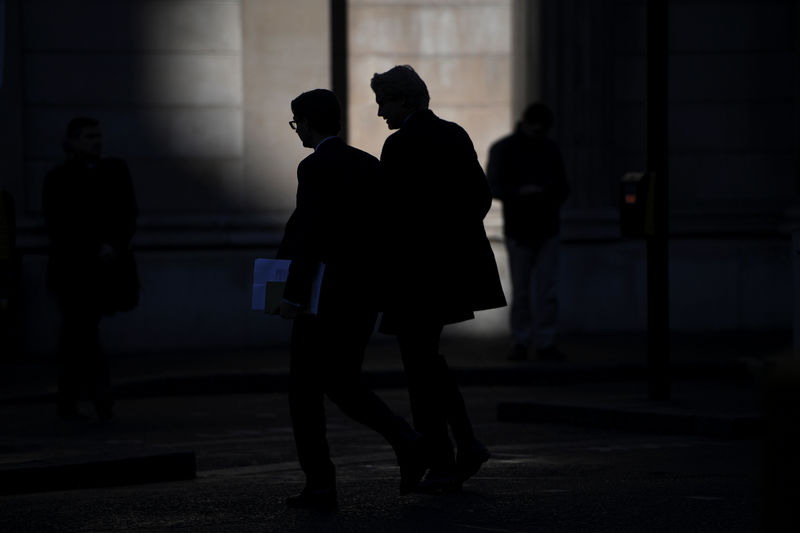By William Schomberg and David Milliken
LONDON (Reuters) - British inflation unexpectedly rose to its highest level in nearly six years in November, tightening the post-Brexit vote squeeze on households whose spending is the main driver of the country's economy.
Consumer price inflation hit an annual rate of 3.1 percent in November, pushed up by air fares, computer games and the price of chocolate, official data showed on Tuesday, reflecting the impact of the pound's plunge after last year's vote to leave the European Union.
There were also signs that factories were under renewed price pressure as global oil prices rose. But most economists said they thought the surge in prices for consumers was peaking.
Now that inflation is more than a percentage point above the Bank of England's 2-percent target, Governor Mark Carney will have to write a letter to finance minister Philip Hammond in February to explain what the BoE is doing in response.
Britain's economy has slowed sharply this year, falling behind a recovering euro zone, and it is expected to lose more ground in 2018 as the effects of the Brexit vote are felt by consumers and companies.
Nevertheless, the BoE raised interest rates for the first time in a decade last month. It said then that inflation was near its peak and would then fall slowly over the next three years to just above 2 percent. It also said a long-awaited pick-up in wage growth was likely next year.
The BoE is widely expected to keep rates unchanged at 0.5 percent on Thursday. Investors are watching mostly for signals from the central bank about how soon rates will rise again.
The pound rose to a session high against the U.S dollar after Tuesday's inflation figures and British government bond futures fell to their lowest level of the day, although the moves were limited.
Lucy O'Carroll, chief economist with Aberdeen Standard Investments, said inflation might be close to its peak but rising costs in the services sector could yet could push up overall prices.
"Further interest rate rises are definitely not off the table," she said. "The Bank of England has a tricky tightrope to walk. Too much inflation could threaten the Bank's credibility and therefore its grip on the economy. But they need to keep consumer spending, the engine of the UK economy, chugging along too."
MORE SQUEEZE
While inflation has jumped since the Brexit vote, wages have risen more slowly. Data due on Wednesday is expected to show total pay, including bonuses, picked up speed in the three months to October but still lagged inflation.
CPI has surged from a subdued 0.5 percent at the time of the Brexit vote in June 2016 to its highest since March 2012.
The Office for National Statistics said on Tuesday the main driver of inflation last month came from air fares which fell, but by less than in November 2016. An increase in prices for computer games also pushed up inflation.
Tuesday's data showed factories faced a pickup in price pressure after the recent rise in oil prices.
The cost of raw materials - many of them imported - was 7.3 percent higher than in November 2016, up from 4.8 percent in October and at the top end of forecasts by economists polled by Reuters. It was the first increase in the rate since August and the sharpest rise since January.

Manufacturers increased the prices they charged by an annual 3.0 percent compared with 2.8 percent in October, in line with the consensus forecast in the Reuters poll.